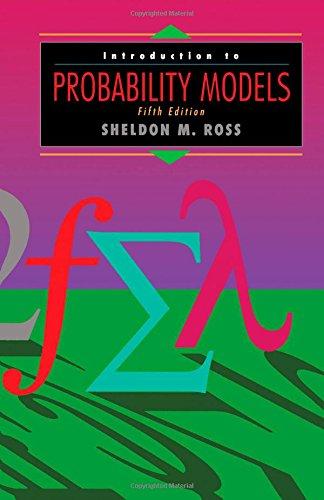34. Four workers share an office that contains four telephones. At any time, each worker is either...
Question:
34. Four workers share an office that contains four telephones. At any time, each worker is either "working" or "on the phone." Each "working"
period of worker / lasts for an exponentially distributed time with rate ëß9 and each "on the phone" period lasts for an exponentially distributed time with rate ì,, / = 1, 2 , 3 , 4 .
(a) What proportion of time are all workers "working"?
Let X i ( t ) equal 1 if worker / is working at time t, and let it be 0 otherwise.
Let X ( 0 = (Xl(t),X2(t),X3(t),X4(t)).
(b) Argue that [X(t)9 t > 0} is a continuous-time Markov chain and give its infinitesimal rates.
(c) Is [X(t)} time reversible? Why or why not?
Suppose now that one of the phones has broken down. Suppose that a worker who is about to use a phone but finds them all being used begins a new "working" period.
(d) What proportion of time are all workers "working"?
Step by Step Answer:







